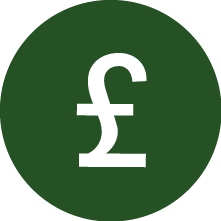The Ever-Changing Face of Digital Money And Its Impact On Mainstream Finance

- Our head of communications and content, award-wining journalist Martin Baker, continues his survey of the fast-changing face of digital money and its impact on mainstream finance.
The problem most journalists face when writing a story is finding a way in. The usual technique is to wrap your arms around a news event, claim its relevance to the reader’s interests and lifestyle and cling on for dear life. In Cryptoland, the world of crypto and central bank digital currencies, digital value tokens, and non-fungible tokens (NFTs) the problem for the reporter is choosing which door of yawningly wide news relevance to walk through. Cryptoland is changing very quickly and in many ways. Some of what’s happening looks to be genuinely important in the “real” world. But, of course, it’s too early to tell.
Here’s a news round-up to illustrate the point. The ten days to 20th April saw the infamous artist Damien Hirst auction off 10,000 pieces of digital art in the form of NFTs [1]; this was followed by a major announcement from the Swedish Central Bank on its development of a digital krona [2], swiftly trailed by Russia’s plans for its own central bank digital currency [3] (CBDC). Arguably lagging the field, but pretending not to, came the Bank of England. Chancellor Rishi Sunak nudged along the process of the UK’s own CBDC, Britcoin, an idea originally developed by former governor of the Bank of England, George Carney. On 19th April Sunak announced a government vision for “a more open, greener, and more technologically advanced financial services sector. The UK is already known for being at the forefront of innovation, but we need to go further… to boost growing fintechs, push the boundaries of digital finance and make our financial markets more efficient, will propel us forward. And if we can capture the extraordinary potential of technology, we’ll cement the UK’s position as the world’s pre-eminent financial centre.” [4] Well, given that, as we’ll see, there’s a struggle for hegemony in this space amongst the world’s central banks, he would say, that, wouldn’t he?
The claims on the reporter’s attention continue: A few days before Sunak’s announcement, artist Mike Winkelman sold an NFT piece at a Christie’s auction for $50 million [5]. For once the price tag was more newsworthy than the faux-provocateur nature of the art (Buzz Lightyear with breasts, Michael Jackson as a pregnant cyborg, etc).
Also arriving mid-April was the IPO of the digital leviathan, Coinbase [6]. Coinbase is the facilitator, the bridge between all the digital weirdness described above and what we laughingly used to call real life. Coinbase is a marketplace where you can log on (56 million users have already done just that) and exchange your old-fashioned money for some of the fancy new stuff – cryptos such as Bitcoin or Ethereum or hundreds of others, digital tokens, CBDCs and Rabbit’s encrypted friends and digital relations.
Coinbase made its market debut at a stupefying $100 billion-plus – that means it passes the only test that really matters in the eyes of the mainstream market. It has the gravitas of money, the imprimatur of settled capital. Coinbase is currently it bigger than a number of traditional exchanges, including Nasdaq, the Chicago Mercantile Exchange, the Chicago Bord of Exchange, and ICE. Cryptoland hasn’t just arrived, its parked its portal-shaped tanks on the lawns of mainstream finance and is clamouring for our attention. Judging by the vast amount of money thrown at it, the operation has been a success.
Meanwhile somewhere in the middle of all this, Bitcoin, the bellwether crypto, surged past its historic $64,500 high. This figure that will surely be ancient history (whether there’ve been gains or losses) by the time this article appears. But the high price fuels the interest and the naked avarice that drive so much of what’s happening.
- The next instalment of this lengthy article will be published in June.

